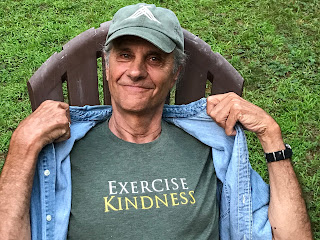What Quaker Education Has to Offer Our World
By Max Carter
I don't have any easy answers for San Bernardino, Ferguson, Columbine, Paris, Chicago, Beirut, West Nickel Mines, Mali, Charleston, Mumbai, Greensboro, Duma or any of the countless other tragedies by whatever name one calls them. But I do know that the last 45 years of my life have been spent in Quaker education in settings as varied as the Middle East, rural Indiana, urban Philadelphia, and suburban Greensboro. My students have been Palestinian, Israeli, Black, White, Asian, Native American, Jewish, Christian, Muslim, Buddhist, Pagan, Evangelical, Liberal, Atheist, wealthy, poor, middle class, Republican, Democrat, Libertarian, military, pacifist, refugees, victims of violence, from the Global South, from the One-Third World, and the just plain run-of-the-mill ordinary person.
But one thing they all have in common, thousands of them: to my knowledge not one of them has committed any kind of atrocity like the ones that are becoming all-too-common. And another thing: they all had benefit of an education rooted in a fundamental belief in the inherent worth and dignity of each person as a child of G-d, that each possesses a divine Light that can be nurtured and brought into a fullness that gives a positive meaning to life. That belief fundamentally impacted the ethos of their education, marking it with principles of peace, justice, simplicity, community, integrity, and truth-seeking.
Many of these students had every reason to have harbored bitterness and anger about their situation. But they were shown a better way than bitterness, anger, and desire for revenge against "enemies" real or perceived.
There are, of course, other educational pedagogies and cultures about which similar observations could be made. But this has been my experience - over nearly half a century - and it might give one pause to reflect on what part of the answer might be to the persistent question of "What can we do?"
We could do worse than start with the quality of education that leads to lives that make a positive impact on the world.
But one thing they all have in common, thousands of them: to my knowledge not one of them has committed any kind of atrocity like the ones that are becoming all-too-common. And another thing: they all had benefit of an education rooted in a fundamental belief in the inherent worth and dignity of each person as a child of G-d, that each possesses a divine Light that can be nurtured and brought into a fullness that gives a positive meaning to life. That belief fundamentally impacted the ethos of their education, marking it with principles of peace, justice, simplicity, community, integrity, and truth-seeking.
Many of these students had every reason to have harbored bitterness and anger about their situation. But they were shown a better way than bitterness, anger, and desire for revenge against "enemies" real or perceived.
There are, of course, other educational pedagogies and cultures about which similar observations could be made. But this has been my experience - over nearly half a century - and it might give one pause to reflect on what part of the answer might be to the persistent question of "What can we do?"
We could do worse than start with the quality of education that leads to lives that make a positive impact on the world.
Max Carter recently retired from Guilford College as the director of Friends Center and Campus Ministry Coordinator. A graduate of Earlham School of Religion (M.Min '75), he was nurtured in the Russiaville, Indiana Friends community, attended Ball State University, and performed alternative service during the Vietnam War as a teacher in the Ramallah Friends Schools. He earned a Ph.D. in American Religious History at Temple University and teaches in the area of Quaker Studies at Guilford and in the Divinity School at Wake Forest University. In 1992, he founded the Quaker Leadership Scholars Program at Guilford, a program that has now produced more than 200 graduates. Max has also taught at Quaker secondary schools in Philadelphia. With his wife
Jane he leads annual work/study trips to Israel and
Palestine.


Comments
Post a Comment